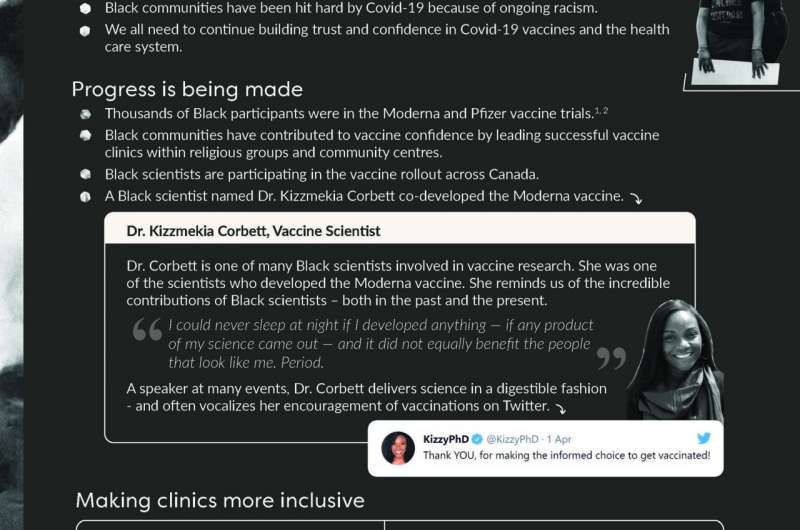Higher vaccine hesitancy persists among Black Canadians


Despite groups designated as visible minorities being at an increased risk of infection and mortality from COVID-19, higher vaccine hesitancy persists among Black Canadians when compared to the general public.
Some of the reasons put forward by members of the Black community as to why they’re hesitant to be vaccinated are lack of confidence in the safety of the vaccine and concerns about its risks and side effects.
A team of researchers from the University of Waterloo including microbiology professor Trevor Charles, pharmacy professor Kelly Grindrod, and health-systems researcher Moses Tetui, seek to allay some of those fears.
Are the COVID vaccine side effects the same for Black people compared to those who are not Black?
Yes, there is no evidence that the side-effects from COVID-19 vaccines are different for any ethnic or racialized group. For all the vaccines approved in Canada, most people experience a sore arm for a few days after the vaccine. Around half of people experience tiredness and a headache, and less than half have body aches, chills or feel feverish. These are all normal and expected side effects and are common with many other vaccines as well. They are signs that the immune system is learning how to recognize COVID.
For all these vaccines, these side effects will happen within a day or two of getting the vaccine and will disappear by the third or fourth day for most people. While there is a small chance that there will be a serious side effect, these are rare. Rare but serious side effects might be something like an allergic reaction. It’s always a great idea to speak with a health professional about any serious allergies or other health conditions or concerns you may have before you receive any vaccine.
Are vaccines developed with considerations given to how they might affect Black people different from other races?
Yes, around 10 percent of the Pfizer and Moderna trial populations identified as Black. The studies demonstrated that there were no differences in efficacy or safety in any racialized or ethnic group. It is also important to note that there is no known evidence that would suggest that vaccines affect people differently based on racial differences. In the past, Black and Indigenous communities were used to test vaccines in what has widely been criticized and categorized as unethical today. The Moderna vaccine was co-developed by a Black immunologist named Dr. Kizzmekia Corbett.
Is the wait-and-see approach adopted by some members of the Black community before receiving their first dose putting them at greater risk?
Source: Read Full Article